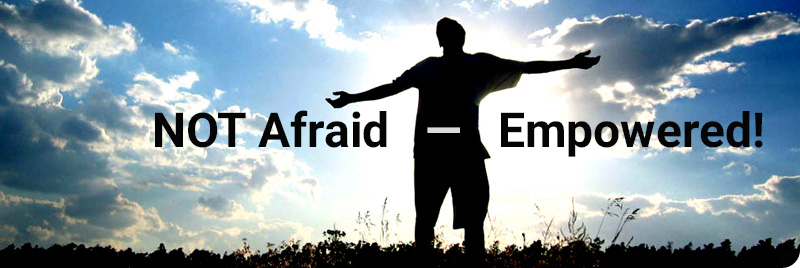Marc Prensky is the founder of The Two Billion Kids Project (2BKids.world)
.
Too many of our kids are afraid.
I hear this over and over from parents and teachers in these Covid times—and I see it in the kids. Yet even before Covid, when I asked kids in schools “Are you afraid of the future?” at least half the hands went up.
I think our kids’ fear comes almost entirely from us—and we can do much to take it away.
One reason that our kids are afraid, obviously, is that they are growing up in a pandemic—with masks, relatives dying, new waves, and huge disagreements over what to do. But their fear regarding Covid comes mostly from adults—the truth is almost none of them will die, or even get sick, and we are learning a lot about viruses, pandemics and vaccines that will help them in the future. Although we cannot prevent them from seeing others affected, we can certainly give our kids this more positive spin.
Another big reason for kids’ fear is that they know they are growing up in a time of enormous, fast-moving technological change. Again this fear—when it exists— comes from us. Kids see change scaring a great many many adults, including many of their parents and teachers. They see adults worrying their kids’ world will be different—but with no idea of how to prepare their kids for it. They see our so-called “educators” floundering as well. Our kids hear constantly from adults that their heavy use of technology—which they are proud of and often comforts them—will make them “addicted” and “bad humans.”
It is crucial that we not pass down our adult fears of technology to our kids. Instead, we should be reminding them just how adaptive humans are. We adults, who comprise “the World’s Last Pre-Internet Generation,” may not be comfortable with fast technology change ourselves, but our young people are already adapting to it, and to their future world. They are starting to live with their devices symbiotically—like we all live symbiotically with the bacteria in our gut. We would be much better off viewing kids’ close relationship with their smartphones—so annoying to many adults—not as addiction, but as adaptation and symbiosis,
Thirdly, and importantly, our kids’ fear comes from the fact that they’ve come into a world of great, existential problems—climate change, nuclear destruction capability and more—which we, to a great extent, have created for them. (Our kids now even hear about possible asteroid collisions, which, we also tell them, totally wiped out the dinosaurs!) I can certainly see how the possibility of human extinction, in their or their kids’ generation, might frighten them.
The Antidote
There is an antidote to all this fear in our kids—EMPOWERMENT. People become fearful and depressed when they think they can take no mitigating actions against their “sea of problems” (as Hamlet put it.) To fix their world our kids need to both be powerful, and believe they can have a positive impact. EMPOWERMENT is the antidote kids need to overcome their fear and fix their world.
What does “empowering our kids” mean? It means at least four things:
Imbuing our kids with new, empowering beliefs. Kids need to believe they can make positive changes in their world. The need to believe in a Growth Mindset. They have to know, in their hearts and heads, that their actions can make a difference and make their world better.
Having our kids accomplish real-world-Impacting projects. Kids need to be making real improvements in the real world over and over again, starting as early as possible—kids can already do this at age 3 (watch this). It should continue throughout their years of growing-up. Every kid needs to be able to point to things in their world and say “See that? Before it was bad. Now, because of what I and my project team did, it is much better.” That—and not just “learning”— is what builds their self-esteem, self-confidence, and competence.
Helping our kids understand and apply their own uniqueness. Everyone on the planet is unique—in the combination of their dreams, their concerns, their strengths and their passions. In the past these differences were not valued. Now we talk about the value of “diversity,” but it needs to go further. In the future anything that two people can do equally well will be automated—from garbage collection to doctoring—so a big part of empowering kids is allowing them to discover and apply their uniqueness to continue being useful..
Making our kids symbiotic with technology and teams. Going forward, humans can no longer do anything truly powerful unaided—either by technology, other people, or both. Our kids’ time will be one of technology and team symbiosis—the tools are already in our hands (and bodies) and will only continue to improve—including how we connect our minds to others’.
Doing these things to help our kids—and thus empower them to face their future world—is the best antidote to today’s kids’ fear. These empowered kids will be the first generation to and explore the universe in large numbers. They will fix many of the world’s problems. If we adults do not empower them, they will do it on their own, for themselves, as they have already started doing (to many adults’ dismay.) We should see our job as adults NOT primarily as teaching kids about our past or protecting them from supposed harm—but as empowering our kids for their future!


